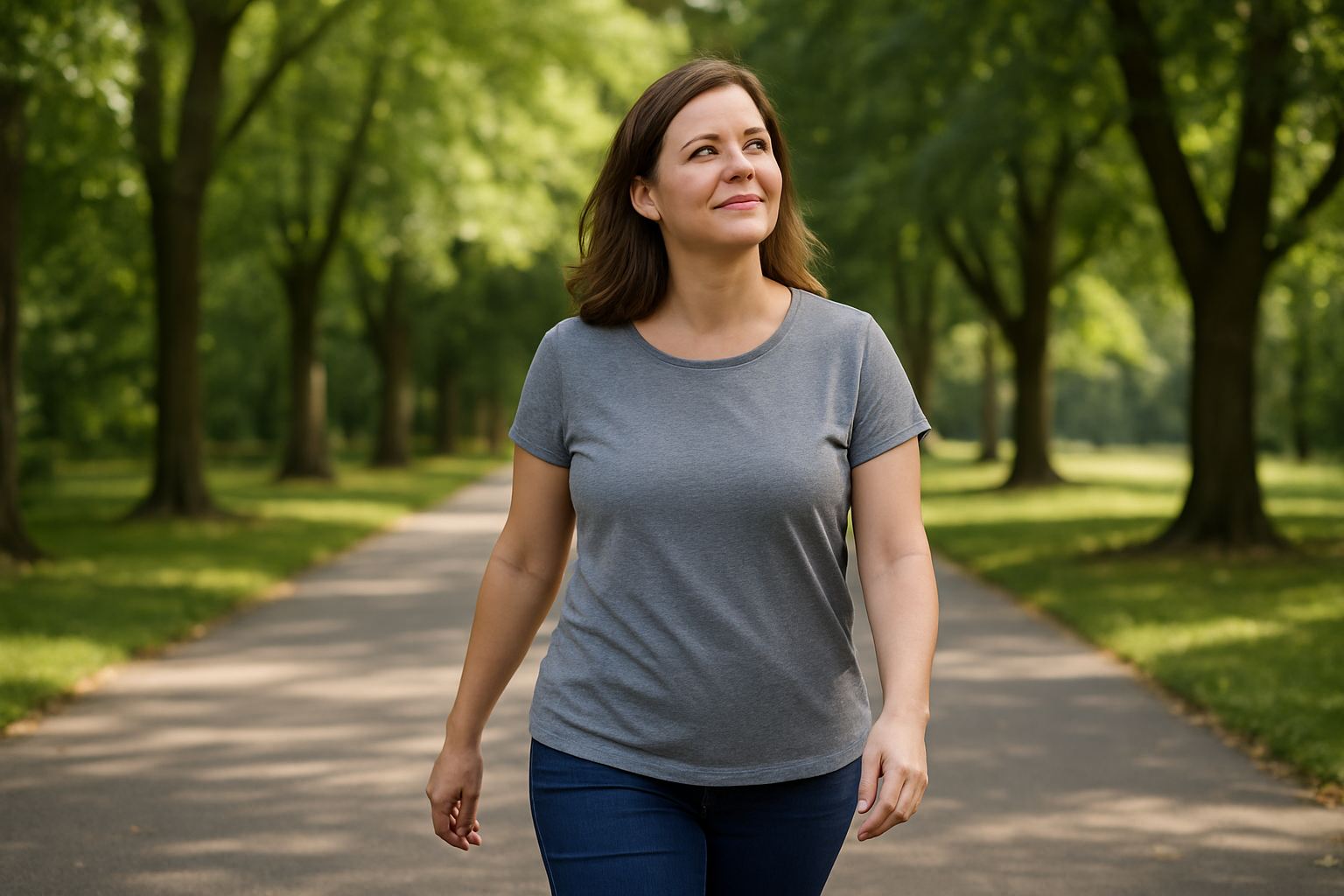A brisk 15-minute walk each day can do wonders for your mental health. It’s a simple exercise that fits into even the busiest schedules, yet delivers powerful benefits—from reducing anxiety to boosting your mood. In this article, we’ll explore the key benefits of walking, explain how a short daily stroll can alleviate stress, and offer practical tips for turning this easy activity into a lifelong habit.
Why Walking Matters for Your Mind
Boosts Mood and Relieves Stress
Walking stimulates the release of endorphins—your body’s natural “feel-good” chemicals. Even a brief 15-minute walk outdoors can lower cortisol levels, helping you manage daily stressors more effectively. Studies show that regular walking sessions reduce feelings of tension and promote relaxation.
Improves Anxiety and Depression
For those struggling with walking for anxiety or mild depression, short, consistent walks can provide relief. The combination of gentle movement, fresh air, and a change of scenery helps break negative thought patterns, offering a mental reset that therapy or medication alone may not deliver.
Key Mental Health Benefits
Enhanced Cognitive Function
Walking increases blood flow to the brain, delivering oxygen and nutrients that support neural health. This leads to sharper focus, improved memory, and greater creativity—critical components of productivity and problem-solving in work or study.
Better Sleep Quality
Engaging in moderate physical activity like a daily walk helps regulate your sleep-wake cycle. People who walk regularly report falling asleep faster and enjoying deeper, more restorative sleep, which in turn enhances overall mental well‑being.
Social Connection and Mindfulness
Walking can be a communal activity—invite a friend or join a local walking group to strengthen social bonds. Even solitary walks offer mindfulness opportunities: pay attention to your breath, the rhythm of your steps, and the sights and sounds around you. This mindful approach reduces rumination and anchors you in the present moment.
How to Incorporate a 15-Minute Walk
Schedule It Like an Appointment
Block 15 minutes on your calendar—first thing in the morning, during lunch, or right after work. Treat it as non-negotiable “you time” to ensure consistency.
Choose the Right Environment
Opt for a pleasant route: a tree-lined street, a nearby park, or even your building’s corridor if weather or safety is a concern. Familiar surroundings can feel more inviting and reduce decision fatigue.
Dress for Success
Wear comfortable shoes and weather-appropriate clothing. Even light rain or cool temperatures shouldn’t deter you—layer up or carry a compact umbrella to stay comfortable year‑round.
Maximizing Your 15 Minutes
Mindful Walking
Focus on the sensory details around you: the firmness of the ground, the rustle of leaves, or the scent of fresh air. This enhances the calming effects and turns a simple walk into a moving meditation.
Interval Boost
If you’re short on time but want extra cardio benefit, alternate one minute of brisk walking with one minute of moderate pace. This elevates your heart rate and adds variety without extending your walk.
Track Your Progress
Use a basic pedometer or smartphone app to count steps or distance. Celebrating small milestones—like 1,000 consecutive days of walking—can motivate you to keep going.
Overcoming Common Barriers
Lack of Time
Break your 15 minutes into two shorter walks (e.g., 8 minutes each). Even mini-breaks throughout the day accumulate benefits.
Poor Weather
Have an indoor backup plan: march in place, use a treadmill if available, or follow a walking video in your living room.
Motivation Slumps
Pair your walk with a podcast, audiobook, or playlist that energizes you. Alternatively, recruit a walking buddy to keep each other accountable.
Conclusion
Integrating a 15-minute daily walk into your routine is one of the simplest yet most effective ways to enhance mental health and well-being. By reaping the mood-boosting, anxiety-reducing, and cognitive-enhancing benefits of this simple exercise, you’ll build resilience against stress and improve your overall quality of life. Lace up your shoes, step outside, and let each short stroll become a powerful investment in your mental wellness.
